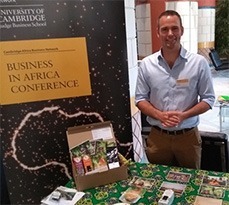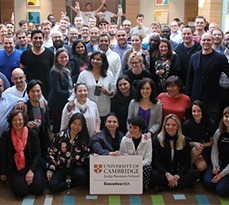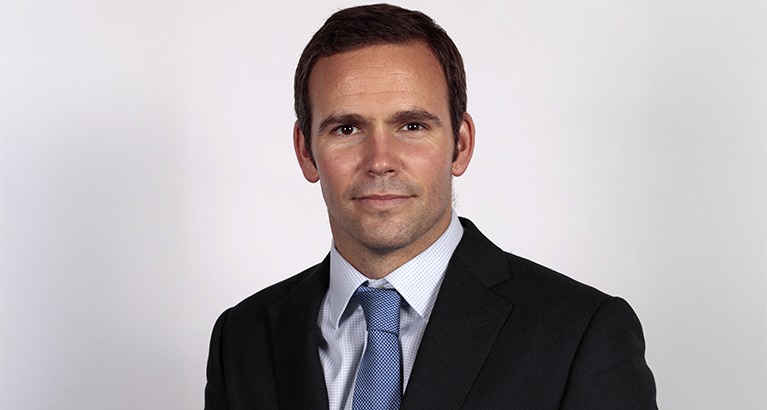Thanks to globalisation, it is easier than ever for food to be exported to consumers across the globe. That is, unless you’re a small farmer in a developing country.
Without the scale or operational capacity to enter the global food supply chain, these producers are shut-out of the international marketplace. Consequently, their high quality, ethically-produced products are unable to reach consumers beyond their own borders.
And yet, the international demand for this type of food prompted Executive MBA graduate Tom Ellum (EMBA 2016) to launch Storimarket. Inspired by his not-for-profit career background in Africa, Tom saw an opportunity to support these farmers and provide a valuable offering to European consumers.
Connecting farmers to global markets
Storimarket is an online marketplace that connects European consumers with small farmers and producers in emerging markets. Consumers can purchase food products straight from the producer that made them, and in the process support small farmers in developing countries. The social impact of the business is at the heart of the Storimarket mission.
“The positive impact that Storimarket can have on our producers is the most important part of the venture,” explains Tom. “Our partners have always sought to farm in a sustainable and ethical fashion, which is the reason why we think their products are so great. But until now they have had limited access to global markets, if any at all.

“By connecting them to international markets, our partners can continue to produce their food in a sustainable way and increase their prosperity.”
Storimarket not only offers value for the farmers they work with, but the increasing numbers of European consumers who are looking internationally for authentic, quality foods.
“Our motto is ‘Tastes good, does good.’ Consumers want international food products of the highest quality, and want to support the farmers and environments that provide them. We share stories about the partners that we work with – such as Ten Senses from Kenya and Asante Mama of Uganda – to let consumers know exactly where their food is coming from and to reinforce the good that they are doing by buying through Storimarket.”
Tom first had the idea for an online marketplace two years ago, the same year in which he joined Cambridge Judge Business School’s Executive MBA programme.
Developing the business within a business school
Tom felt that focussing his Executive MBA studies on developing Storimarket was the best possible preparation he could have had before launching the venture in May 2018.
“The EMBA experience at Cambridge allowed me to focus a lot of the programme content and learning on what would eventually become Storimarket. My final Individual Project was dedicated to developing the company’s business plan. Lectures on topics as broad as Frugal Innovation and Design Thinking helped me to think about how Storimarket can help the food producers we work with – what can they get out of this? How can we, as a company, make their lives better?”
Cambridge Judge Business School has an in-house Entrepreneurship Centre that aims to inspire, enable and research entrepreneurship in all its forms. In addition to his Executive MBA, Tom joined the Centre’s Pre-Accelerate programme, a three-month programme in which he received regular coaching and mentoring to develop his business.
“One of the best pieces of advice I received from a CJBS supervisor was: ‘entrepreneurs don’t think enough’ – that is, they’re too busy trying to get their business off the ground to take a step back, reflect and really examine how they can build their venture effectively.”
Tom was not only able to leverage the learning from the Executive MBA and Entrepreneurship programmes, but also that of colleagues, friends and future associates he found in his Executive MBA network.
“My EMBA class had lots of amazing people who supported me and actively contributed to getting Storimarket off the ground. One of my classmates was the Chairman of an FMCG group, so helped me with our product testing.
“Another classmate specialised in start-up leadership, which helped me to build a team in which I’m working with three MBAs from different business schools, all of whom have their own specialisms and contribute a great deal to our mission.”
Tom found help and support beyond the School from the wider University of Cambridge community, developing relationships with the Department of Plant Sciences and the Cambridge Institute for Sustainability Leadership.
The impact of an Executive MBA

But what about the individual impact of the Executive MBA experience on Tom?
“The programme also helped me to rethink the concept of career progression. I’ve been encouraged to think not what job I want in ten years’ time, but what life do I want instead.
“I’ve also developed really strong relationships with my EMBA class. It’s not enough to call it a ‘network’ – it doesn’t do justice to how deep and meaningful our shared experience on this programme has been.
“As to starting Storimarket, I used to think that there was this ‘Eureka’ moment that came when you started a company. As our EMBA International Business Trip to Silicon Valley proved, there isn’t a ‘perfect opportunity’. I’ve learnt that if you have an idea, and want to start a business, quite simply, it’s now or never!”


